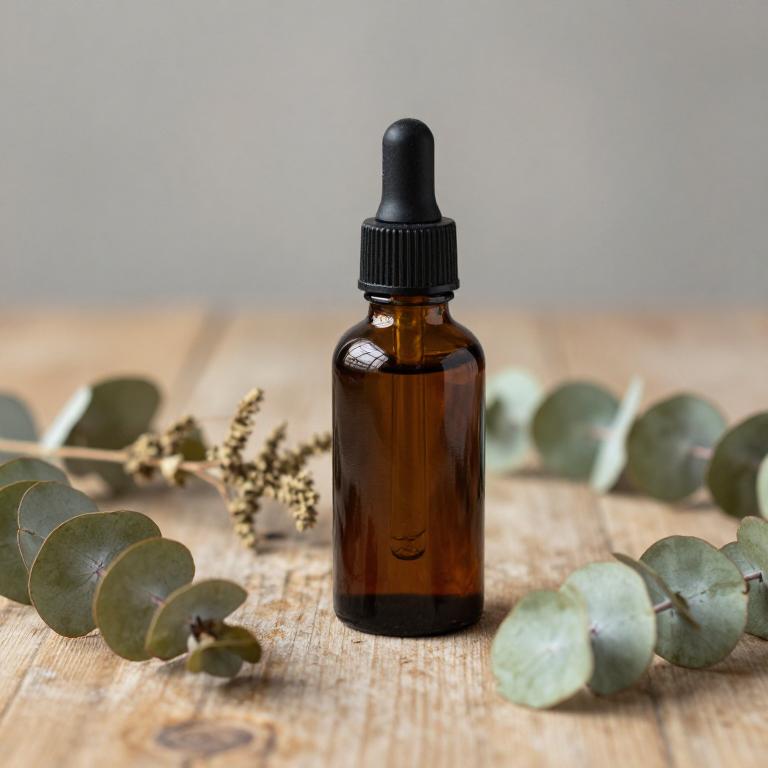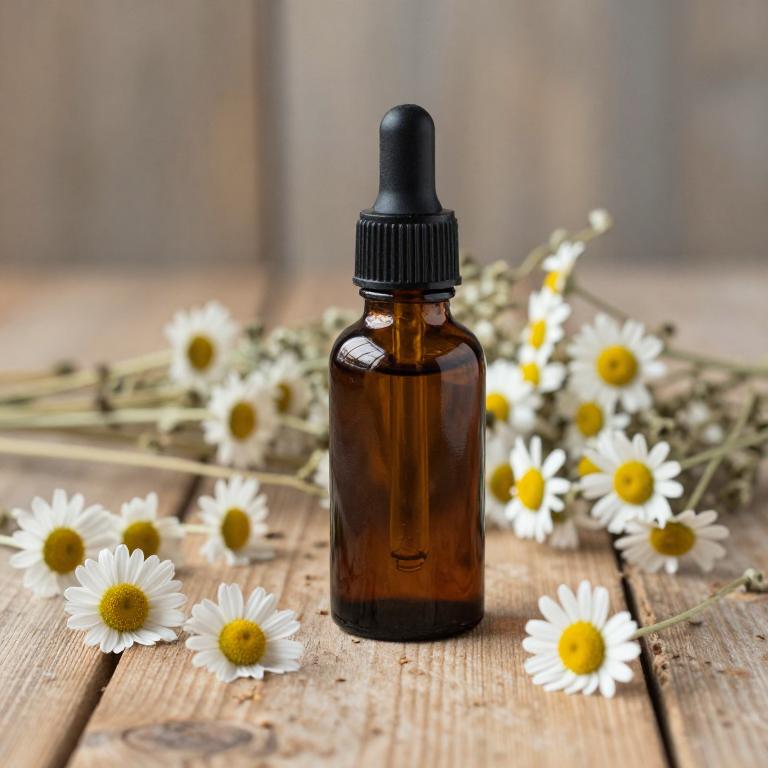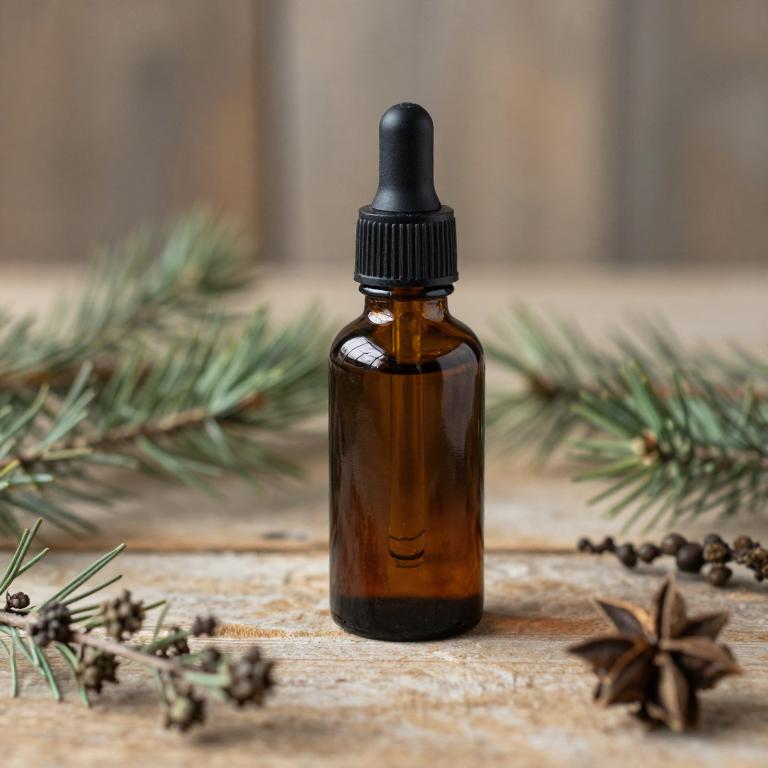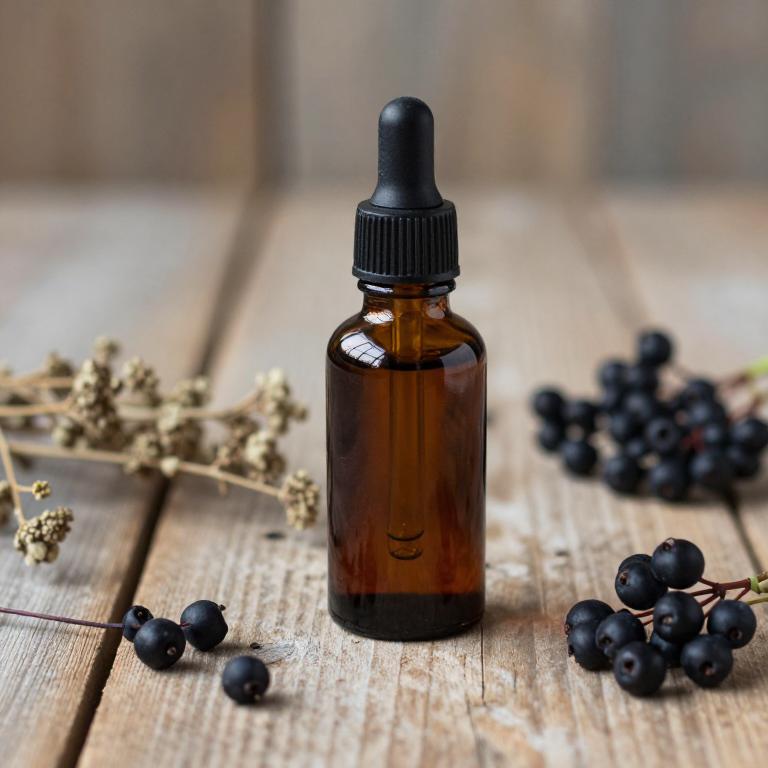10 Best Herbal Tinctures For Cough

Herbal tinctures for cough are concentrated liquid extracts made by soaking plant materials in alcohol or glycerin, which helps preserve the active compounds.
These tinctures are often used as natural remedies to alleviate symptoms of coughs, bronchitis, and other respiratory conditions. Common herbs used in cough tinctures include echinacea, thyme, ginger, and licorice root, each offering anti-inflammatory, antimicrobial, or expectorant properties. They can be taken orally in small doses and are typically easy to administer, especially for children or individuals who have difficulty swallowing pills.
While generally safe, it is important to consult a healthcare provider before using herbal tinctures, particularly if you are on medication or have underlying health conditions.
Table of Contents
- 1. Thyme (Thymus vulgaris)
- 2. Ginger (Zingiber officinale)
- 3. Peppermint (Mentha piperita)
- 4. Eucalyptus (Eucalyptus globulus)
- 5. Chamomile (Matricaria chamomilla)
- 6. Fennel (Foeniculum vulgare)
- 7. Chaste tree (Vitex agnus-castus)
- 8. Scots pine (Pinus sylvestris)
- 9. Black elderberry (Sambucus nigra)
- 10. Echinacea (Echinacea purpurea)
1. Thyme (Thymus vulgaris)

Thymus vulgaris, commonly known as thyme, is a popular herb used in traditional medicine for its potent antimicrobial and anti-inflammatory properties.
Thyme essential oil, often used in tincture form, is believed to help alleviate symptoms of cough by reducing mucus production and soothing irritated airways. When prepared as a tincture, thymus vulgaris can be diluted in alcohol and taken orally to support respiratory health. Its active compound, thymol, is thought to enhance immune function and combat respiratory infections.
While thyme tinctures may offer natural relief for coughs, they should be used with caution and under the guidance of a healthcare professional, especially for individuals with allergies or existing medical conditions.
2. Ginger (Zingiber officinale)

Zingiber officinale, commonly known as ginger, has been traditionally used for its medicinal properties, including its ability to alleviate cough symptoms.
Ginger herbal tinctures are concentrated liquid extracts made by soaking fresh or dried ginger in alcohol or glycerin, preserving its active compounds such as gingerol and shogaol. These tinctures are believed to help reduce inflammation in the respiratory tract and ease bronchial congestion, making them a popular natural remedy for coughs. Their warming effect may also help soothe the throat and reduce mucus production.
When used as part of a holistic approach, ginger tinctures can provide relief from persistent or dry coughs, though it is advisable to consult a healthcare professional before use, especially for those with underlying health conditions.
3. Peppermint (Mentha piperita)

Mentha piperita, commonly known as peppermint, is often used in herbal tinctures to alleviate cough symptoms due to its soothing and decongestant properties.
The essential oils in peppermint, particularly menthol, help to ease throat irritation and reduce the frequency of coughing by acting as a mild anesthetic and antispasmodic. These tinctures are typically prepared by soaking dried peppermint leaves in alcohol to extract the active compounds, making them easy to use and absorb. Peppermint tinctures are often recommended for dry, hacking coughs and can be taken in small doses several times a day as needed.
However, they should be used with caution in individuals with asthma or gastrointestinal sensitivities, as menthol may cause irritation in some cases.
4. Eucalyptus (Eucalyptus globulus)

Eucalyptus globulus, commonly known as the Australian tea tree, is widely used in herbal tinctures for its potent expectorant and antimicrobial properties.
These tinctures are often employed to alleviate symptoms of coughs by helping to loosen mucus and reduce respiratory tract inflammation. The active compounds in eucalyptus, such as cineole and limonene, contribute to its ability to soothe irritated airways and ease breathing. When used as a complementary therapy, eucalyptus globulus tinctures can provide natural relief for both dry and productive coughs.
However, it is important to consult a healthcare professional before use, especially for individuals with allergies or underlying health conditions.
5. Chamomile (Matricaria chamomilla)

Matricaria chamomilla, commonly known as chamomile, is a herbal remedy often used in tincture form to alleviate cough symptoms.
The tincture is prepared by soaking dried chamomile flowers in alcohol, allowing the active compounds such as bisabolol and flavonoids to be extracted. These compounds possess anti-inflammatory and antispasmodic properties that can help reduce throat irritation and ease bronchial spasms associated with coughing. Chamomile tinctures are typically taken in small doses, often diluted in water or honey, to soothe the respiratory tract.
While generally considered safe, it is advisable to consult a healthcare professional before use, especially for individuals with allergies or existing medical conditions.
6. Fennel (Foeniculum vulgare)

Foeniculum vulgare, commonly known as fennel, is a traditional herb often used in herbal tinctures to support respiratory health, particularly for alleviating cough symptoms.
The tincture is typically prepared by soaking the dried fennel seeds in alcohol to extract its essential oils, which contain compounds like anethol and fenchone known for their expectorant and antispasmodic properties. These properties help loosen mucus in the airways and reduce bronchial irritation, making it beneficial for both dry and productive coughs. Fennel tinctures are often used in homeopathic and alternative medicine practices to soothe throat discomfort and ease breathing.
However, it is important to consult with a healthcare professional before use, especially for individuals with allergies or those taking other medications.
7. Chaste tree (Vitex agnus-castus)

Vitex agnus-castus, commonly known as chasteberry, is a traditional herbal remedy that has been used for centuries for its potential therapeutic effects.
While it is most widely recognized for its hormonal balancing properties, some herbalists suggest that vitex tinctures may support respiratory health and help alleviate symptoms of coughs. The herb is believed to possess anti-inflammatory and antispasmodic properties that could soothe irritated airways and reduce bronchial congestion. However, it is important to note that scientific evidence specifically supporting its efficacy for cough treatment is limited, and it should not replace prescribed medical treatments.
As with any herbal remedy, it is advisable to consult with a healthcare professional before use, especially for individuals with pre-existing health conditions or those taking other medications.
8. Scots pine (Pinus sylvestris)

Pinus sylvestris, commonly known as Scots pine, has been traditionally used in herbal medicine for its potential respiratory benefits, particularly in alleviating cough symptoms.
The tinctures made from the resin and needles of the Scots pine tree are believed to possess antimicrobial and anti-inflammatory properties that may help reduce irritation and mucus production in the respiratory tract. These tinctures are often prepared by soaking the dried resin in alcohol, creating a concentrated extract that can be taken in small doses. Herbal practitioners sometimes recommend Pinus sylvestris tinctures as a natural alternative or complementary treatment for persistent or chronic coughs.
However, it is important to consult with a healthcare professional before using these tinctures, especially for individuals with allergies or underlying health conditions.
9. Black elderberry (Sambucus nigra)

Sambucus nigra, commonly known as elderberry, is often used in herbal tinctures to support respiratory health, including alleviating cough symptoms.
These tinctures are typically prepared by soaking the dried berries in alcohol, which helps extract their bioactive compounds such as flavonoids and antioxidants. The anti-inflammatory and immune-boosting properties of elderberry may help reduce the severity and duration of coughs caused by colds or viral infections. While generally considered safe when used as directed, it is important to consult a healthcare professional before using elderberry tinctures, especially for prolonged periods or in combination with other medications.
Overall, Sambucus nigra tinctures can be a natural complement to traditional cough remedies, though they should not replace medical treatment for persistent or severe respiratory issues.
10. Echinacea (Echinacea purpurea)

Echinacea purpurea, commonly known as purple coneflower, is a popular herbal remedy often used to support immune function and alleviate symptoms of respiratory infections, including coughs.
When prepared as a tincture, echinacea purpurea is typically made by soaking the dried plant material in alcohol, which helps extract its active compounds such as alkamides, flavonoids, and polysaccharides. Studies suggest that echinacea may help reduce the duration and severity of coughs associated with the common cold by enhancing the body's immune response. However, it is important to consult with a healthcare provider before using echinacea tinctures, especially for individuals with allergies or those taking other medications.
While some people find echinacea tinctures effective for cough relief, results can vary, and more research is needed to fully understand its efficacy and safety.